Endurance Sports

What are the effects of poor sleep on endurance sports ?
Poor sleep can negatively impact endurance sports performance by decreasing athletic performance, impairing cognitive function, increasing the risk of injury, and elevating stress levels. Endurance athletes should prioritize getting enough high-quality sleep each night to optimize their physical and mental abilities while reducing their risk of injury and illness.

How can carbohydrate loading benefit endurance athletes ?
Carbohydrate loading, or "carb-loading," is a dietary strategy used by athletes to maximize glycogen storage in muscles and liver for endurance sports. It offers benefits like increased energy availability, enhanced recovery, and mental advantages such as confidence and focus. Implementing this strategy involves reducing training intensity while increasing carbohydrate intake, choosing complex carbs over refined sugars, and maintaining proper hydration and electrolyte balance. While effective for many endurance athletes, individualized planning with a nutritionist is recommended.

Are there any specific dietary recommendations for endurance athletes
Dietary recommendations for endurance athletes include consuming a higher intake of complex carbohydrates, adequate protein for muscle repair and recovery, healthy fats for energy, proper hydration, meeting increased needs for micronutrients, timing meals and snacks for optimal performance, and individualizing dietary needs based on personal factors.

How often should I run to see improvements in my speed and endurance ?
To see improvements in your speed and endurance, you should run 2-3 days per week of high-intensity interval training (HIIT) or sprint workouts if your goal is speed, 3-4 days per week of moderate-intensity runs lasting 30-60 minutes if your goal is endurance, or a combination of both if your goal is both speed and endurance. It's crucial to listen to your body, be consistent, and track your progress to achieve your running goals.

What are some effective exercises for building strength and endurance in the water ?
Effective Water Exercises for Building Strength and Endurance Water exercises are a great way to build strength and endurance. They provide resistance that helps to tone muscles, improve cardiovascular health, and increase overall fitness levels. Here are some effective water exercises that you can try: 1. Swimming Laps 2. Water Aerobics 3. Resistance Training 4. High-Intensity Interval Training (HIIT) 5. Yoga in the Water Whether you prefer swimming laps, participating in water aerobics classes, resistance training, HIIT workouts, or yoga in the water, there's an option out there for everyone. So why not give it a try today?

What is the relationship between sleep and athletic performance ?
The relationship between sleep and athletic performance is crucial, as adequate sleep is essential for athletes to perform at their best both physically and mentally. During sleep, the body undergoes recovery and repair processes, including muscle growth and repair and immune system functioning. Sleep also plays a vital role in maintaining mental health and cognitive functioning, such as concentration and focus and mood regulation. Additionally, sleep is crucial for maintaining energy levels and endurance, particularly for endurance athletes. However, sleep deprivation can have several negative effects on an athlete's performance, including decreased reaction time, impaired coordination, reduced endurance, increased perceived exertion, and altered perception. Therefore, it is essential for athletes to prioritize their sleep and ensure they get enough restful sleep each night to maximize their athletic performance.
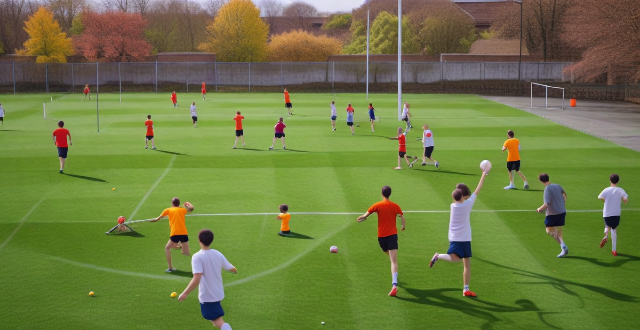
What are the benefits of sports for people with disabilities ?
Sports and physical activities provide numerous benefits for people with disabilities, including improved physical health, mental well-being, and overall quality of life. Engaging in sports can help individuals with disabilities build strength and endurance, improve mobility and coordination, and reduce the risk of injury. Participating in sports can also boost self-esteem and confidence, reduce symptoms of anxiety and depression, and provide opportunities for socialization. Additionally, sports can increase independence, open up access to recreational activities, and enhance overall well-being.

How does sports affect the physical development of adolescents ?
Sports during adolescence positively impact physical development by enhancing muscular strength, improving bone density, promoting coordination and balance, managing body composition, benefiting cardiovascular health, and fostering mental well-being. Additionally, they encourage active lifestyle habits and social interaction, setting a foundation for lifelong health and wellness.
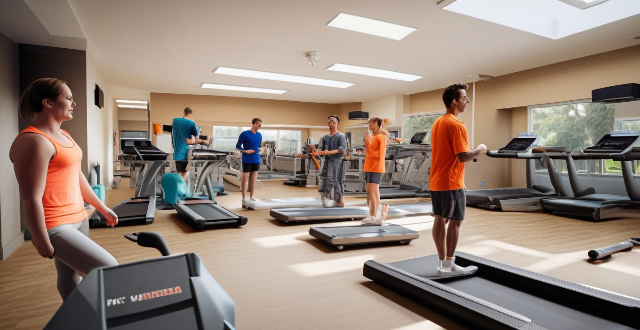
What role does genetics play in determining an individual's potential for elite sports performance ?
Genetics plays a significant role in determining an individual's potential for elite sports performance. Physical attributes, physiological characteristics, and psychological traits all contribute to success in sports. Height and body build, muscle composition and fiber type, oxygen uptake and energy production, recovery and injury resistance, motivation and mental toughness, and cognitive abilities are all influenced by genetics. However, environmental factors such as training, nutrition, and coaching also play a crucial role in an athlete's development and success.

Is it necessary to take supplements for sports nutrition ?
Supplements for sports nutrition are a controversial topic, with some athletes swearing by them and others considering them unnecessary or even harmful. The necessity of taking such supplements depends on various factors including an individual's diet, training intensity, and specific goals. Sports nutrition supplements come in various forms like pills, powders, bars, and liquids, and include protein supplements, creatine, beta-alanine, caffeine, BCAAs, pre-workout formulas, and post-workout formulas. While a balanced diet can provide most of the nutrients needed for optimal athletic performance, there are certain situations where supplements may be beneficial. These include inadequate nutrient intake from food alone, high-intensity or endurance training, and specific goals or deficiencies. However, there are also potential risks associated with taking sports nutrition supplements, such as overconsumption and imbalanced nutrient intake, contamination and quality concerns, and interactions with medications or other supplements. Therefore, it is essential to choose reputable brands, check for third-party certifications whenever possible, and consult with a healthcare professional before starting any new supplement regimen. In conclusion, whether or not it is necessary to take supplements for sports nutrition depends on individual circumstances. While they can offer benefits for certain athletes and scenarios, they should not replace a well-rounded diet rich in whole foods. Before incorporating any supplements into your routine, consider your specific needs and goals and consult with a qualified healthcare professional or registered dietitian for personalized advice.

What is the impact of altitude on sports performance ?
This article explores the impact of altitude on sports performance, including its effects on oxygen availability, respiratory rate, and heart rate. It discusses how altitude affects endurance sports, power sports, and team sports differently and provides strategies for dealing with altitude such as acclimatization, proper hydration and nutrition, and training at altitude. The article emphasizes the importance of managing these challenges to maximize performance under challenging conditions.
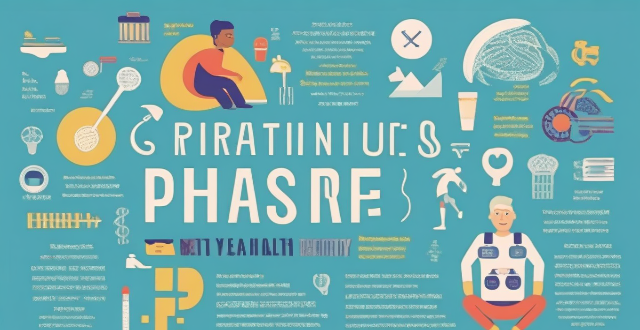
How does sports education contribute to physical fitness and overall health ?
This text discusses the importance of sports education in promoting physical fitness and overall health. It highlights various benefits such as improved cardiovascular health, muscular strength, weight management, mental well-being, social interaction, and injury prevention. The text emphasizes the role of sports education in fostering healthy lifestyle habits and reducing the risk of obesity-related health issues, heart diseases, and stroke. It also mentions the mental health benefits of engaging in sports activities, including reduced stress, anxiety, and depression. Finally, the text underscores the importance of sports education in developing teamwork skills, leadership qualities, and problem-solving abilities.

In what ways do factors like body composition and flexibility affect sports biomechanics ?
In sports biomechanics, body composition and flexibility are crucial factors affecting performance. Increased muscle mass and a high strength-to-weight ratio enhance power in weightlifting and sprinting. A lower fat percentage improves aerodynamics and reduces energy expenditure in endurance activities. Higher bone density offers better support in impact-heavy sports. Greater flexibility increases the range of motion, preventing injuries and improving efficiency in rapid movements. Optimal body composition and flexibility can significantly improve an athlete's performance and reduce injury risk.
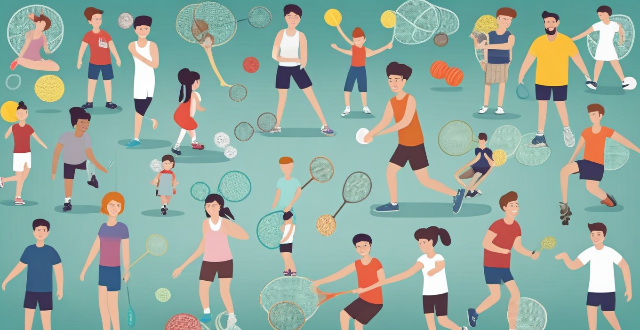
What are some adaptive sports for people with physical disabilities ?
Adaptive sports are modified or specially designed physical activities for people with disabilities, promoting fitness, health, and inclusion. They offer opportunities for competition and social interaction. Popular adaptive sports include wheelchair basketball, racing, and tennis; sitting volleyball; para swimming; track and field events for amputees; goalball; para alpine skiing; and beep baseball for the visually impaired. These sports provide physical benefits and opportunities for personal growth, independence, and social integration.

Are sports nutrition supplements more effective when taken before or after a workout ?
The timing of when to take sports nutrition supplements can significantly impact their effectiveness. In this discussion, we will explore the benefits and drawbacks of taking sports nutrition supplements before and after a workout. Taking Supplements Before a Workout: Benefits include energy boost, muscle endurance, and hydration. Drawbacks include digestive discomfort, overstimulation, and timing issues. Taking Supplements After a Workout: Benefits include recovery support, reduced soreness, and hydration restoration. Drawbacks include delayed absorption, less effective for energy, and potential for overconsumption. In conclusion, the effectiveness of sports nutrition supplements depends largely on individual goals, preferences, and specific needs related to training intensity and duration. It is essential to consult with a healthcare professional or sports nutritionist to determine the best strategy for incorporating supplements into your fitness routine.

Can sports be used as a tool for personal growth and self-improvement ?
The text discusses the various ways in which sports can be used as a tool for personal growth and self-improvement. The author highlights the following aspects: - Mental toughness and resilience: Facing challenges and overcoming failure through sports can cultivate mental toughness and build resilience. - Teamwork and communication: Working together and effective communication are essential skills developed through team sports, which can enhance interpersonal relationships and group dynamics. - Discipline and time management: The structured approach required in sports can improve personal organization and time management skills, along with goal setting and strategic thinking. - Physical health and well-being: Sports contribute significantly to physical health by promoting fitness and endurance, and can also improve mental health by combating depression and anxiety. - Leadership and initiative: Sports provide opportunities for individuals to step up as leaders and develop problem-solving abilities, encouraging proactive behavior. - Self-confidence and self-esteem: Achieving mastery in sports can boost an athlete's confidence and self-esteem, fostering a positive self-image. - Adaptability and learning agility: Sports require athletes to adapt quickly to new tactics or game plans, encouraging a mindset of continuous learning that extends beyond the sporting realm. Overall, the text emphasizes that sports offer a comprehensive toolkit for personal development, encompassing benefits that extend far beyond the playing field. Engaging in sports can be a powerful catalyst for self-improvement and personal growth.
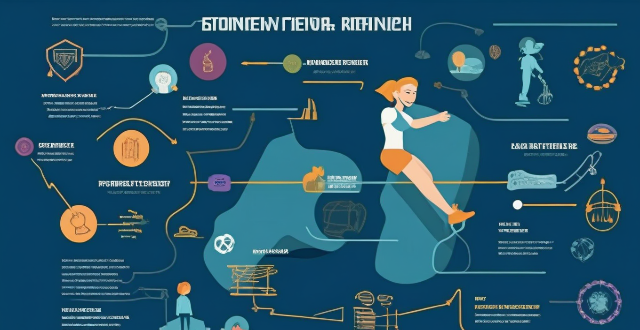
How can sports research and development help prevent injuries ?
Sports research and development can help prevent injuries by understanding injury mechanisms, developing prevention strategies, and utilizing technology and education. Biomechanics studies and epidemiological research provide insights into how forces affect the body during physical activity and identify common factors that contribute to injuries. Based on these findings, sports scientists can design training programs that target specific areas of the body, improving strength, flexibility, and endurance. Technology and equipment advancements also play a role in protecting athletes from injury. Educating coaches, athletes, and parents about proper technique and safe training practices is essential for creating a culture of safety. Overall, sports research and development are crucial for minimizing the risk of harm and promoting a safer environment for all participants.
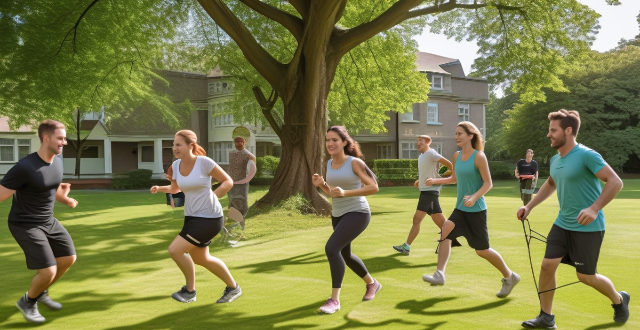
How can sports help improve the physical health of rural residents ?
Sports and physical activities can greatly improve the physical health of rural residents by enhancing fitness levels, managing weight, promoting mental well-being, encouraging social interactions, and preventing chronic diseases. It is crucial for local authorities and organizations to promote sports programs and provide accessible facilities to encourage more rural dwellers to engage in physical activities regularly.

How can sports medicine help athletes recover from surgery or injury ?
**Sports Medicine: Aiding Athletes in Recovery from Surgery or Injury** The field of sports medicine plays a critical role in helping athletes recover from injuries and surgeries. It involves a multifaceted approach that includes pre-operative management, post-operative care, rehabilitation programs, and facilitating a safe return to sport. Professionals in this area assess the injury, prepare the athlete for surgery, manage pain, provide physical therapy, offer nutritional and psychological support, and create tailored rehabilitation programs focusing on functional training, strength building, flexibility, and endurance. The ultimate goal is to ensure the athlete's complete recovery and prevent future injuries.

What is the ideal meal timing for optimal sports performance
The ideal meal timing for optimal sports performance is crucial for athletes to maximize their potential. Proper nutrition can help improve endurance, strength, and overall performance during physical activities. Key points to consider when planning meals include eating a pre-workout meal containing carbohydrates, protein, and healthy fats 2-3 hours before exercise; staying hydrated throughout the day; consuming simple carbohydrates during longer workouts; eating a post-workout meal rich in protein and carbohydrates within 30 minutes after exercising; and avoiding eating too close to workout time. By following these guidelines, athletes can ensure they have the necessary fuel for their bodies to perform at their best.

What is the difference between sports nutrition supplements and regular multivitamins ?
Sports nutrition supplements are designed for athletes and those who engage in regular physical activities, aiming to improve performance, increase muscle strength, and support recovery. Common ingredients include protein, creatine, beta-alanine, BCAAs, and caffeine. In contrast, regular multivitamins cater to the general population, focusing on maintaining overall health by filling nutrient gaps. Typical ingredients are vitamins A, C, D, E, K, B-complex, minerals like calcium, iron, zinc, magnesium, and trace elements. The benefits of sports nutrition supplements revolve around enhanced athletic performance, while regular multivitamins promote immune function, nutrient intake, and general well-being.

How does age impact the ability to learn and improve sports skills ?
Age impacts learning and improving sports skills due to physical, cognitive, and psychological changes. Physical changes include decline in muscle mass and strength, decreased cardiovascular fitness, and joint pain and stiffness. Cognitive changes involve slower reaction times, decreased motor coordination, and memory loss. Psychological changes include fear of injury and lack of motivation. By adapting training accordingly, older athletes can continue to improve their sports skills and enjoy participating in sports throughout their lives.
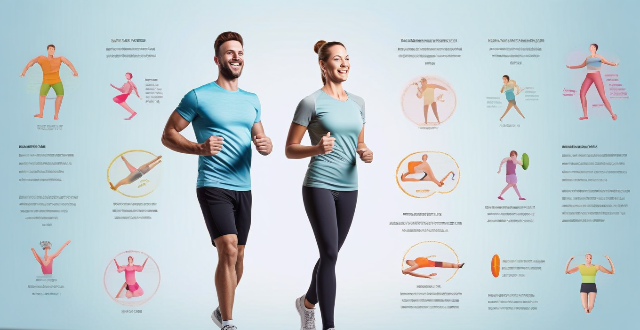
What is the importance of nutrition in sports medicine ?
The article discusses the importance of nutrition in sports medicine, emphasizing its role in providing energy for exercise, preventing injuries, enhancing performance, aiding recovery, supporting the immune system, and contributing to mental well-being. It highlights the specific nutrients that are crucial for athletes, such as carbohydrates for energy, protein for muscle repair, iron for oxygen transport, B vitamins for energy conversion, and antioxidants for cell protection. The article also emphasizes the need for a balanced diet to prevent illnesses and improve overall health. It suggests that athletes should work with sports nutritionists to develop personalized diet plans that meet their specific needs and goals.

What innovations in sports technology can help prevent injuries ?
Innovations in sports technology have made it possible to prevent many sports injuries before they happen. Wearable technology, smart clothing, virtual reality training, strength and conditioning programs, and recovery techniques are all options available to help athletes stay safe and healthy while performing at their best. By embracing these technologies, coaches, trainers, and athletes can work together to create safer environments for sports competitions and training sessions.

What is the daily workout routine of a famous sports star or celebrity ?
The article discusses the importance of a consistent workout routine for famous sports stars and celebrities, highlighting its benefits in maintaining physical fitness, preventing injuries, and promoting mental health. It then provides examples of daily workout routines of notable figures like LeBron James, Serena Williams, Dwayne "The Rock" Johnson, and Jennifer Lopez, showcasing their diverse approaches to fitness that include strength training, cardiovascular exercises, agility drills, flexibility training, and mobility work. Overall, the article underscores the significance of a well-rounded fitness regimen in achieving and maintaining success in sports and entertainment industries.

How is GPS used in sports monitoring and analysis ?
GPS technology has transformed sports monitoring and analysis by providing accurate data on athlete movements, speed, distance, and other performance metrics. Its primary uses include tracking athlete movements during training or competition, measuring speed and distance, and analyzing various performance metrics such as heart rate and power output. The benefits of GPS in sports monitoring include improved performance, injury prevention, effective pacing strategies, personalized training plans, and data-driven decision making. Examples of GPS use in sports monitoring include football (soccer), cycling, swimming (with wearable devices instead of GPS), and running.

Can playing multiple sports help in skill development ?
Participation in multiple sports can enhance overall athleticism and skill development by improving physical attributes, reducing injury risk, developing transferable skills, and promoting mental toughness. It also offers social benefits such as expanded networks and increased opportunities for exposure. While specialization has its advantages, playing multiple sports can help athletes become well-rounded competitors.

Do sports rehabilitation centers offer preventative care to avoid future injuries ?
Sports rehabilitation centers play a crucial role in offering preventative care services to help individuals avoid future injuries. They provide comprehensive assessments, customized exercise programs, education and training, utilize advanced equipment and technology, and collaborate with healthcare professionals to improve overall health and reduce the risk of re-injury.

What is the role of a sports medicine doctor in treating sports injuries ?
The text discusses the multifaceted role of sports medicine doctors in managing and treating sports injuries. It covers diagnosis, treatment planning, prevention strategies, assessment for returning to play, and collaboration with other health professionals. The summary should highlight the comprehensive approach of these specialists in ensuring athletes' well-being and optimal performance.

How does sports medicine help prevent injuries in sports ?
The text discusses how sports medicine helps in preventing injuries in sports by providing athletes with necessary knowledge, skills, and resources for maintaining their health and safety. It outlines key ways such as pre-participation physical examinations, proper warm-ups, strength training programs, correct technique, injury management, and education. These measures aim to identify risks, prepare the body for exercise, enhance fitness levels, promote safe practices, and manage injuries effectively. Overall, sports medicine plays a vital role in fostering a culture of safety and well-being within sports communities.